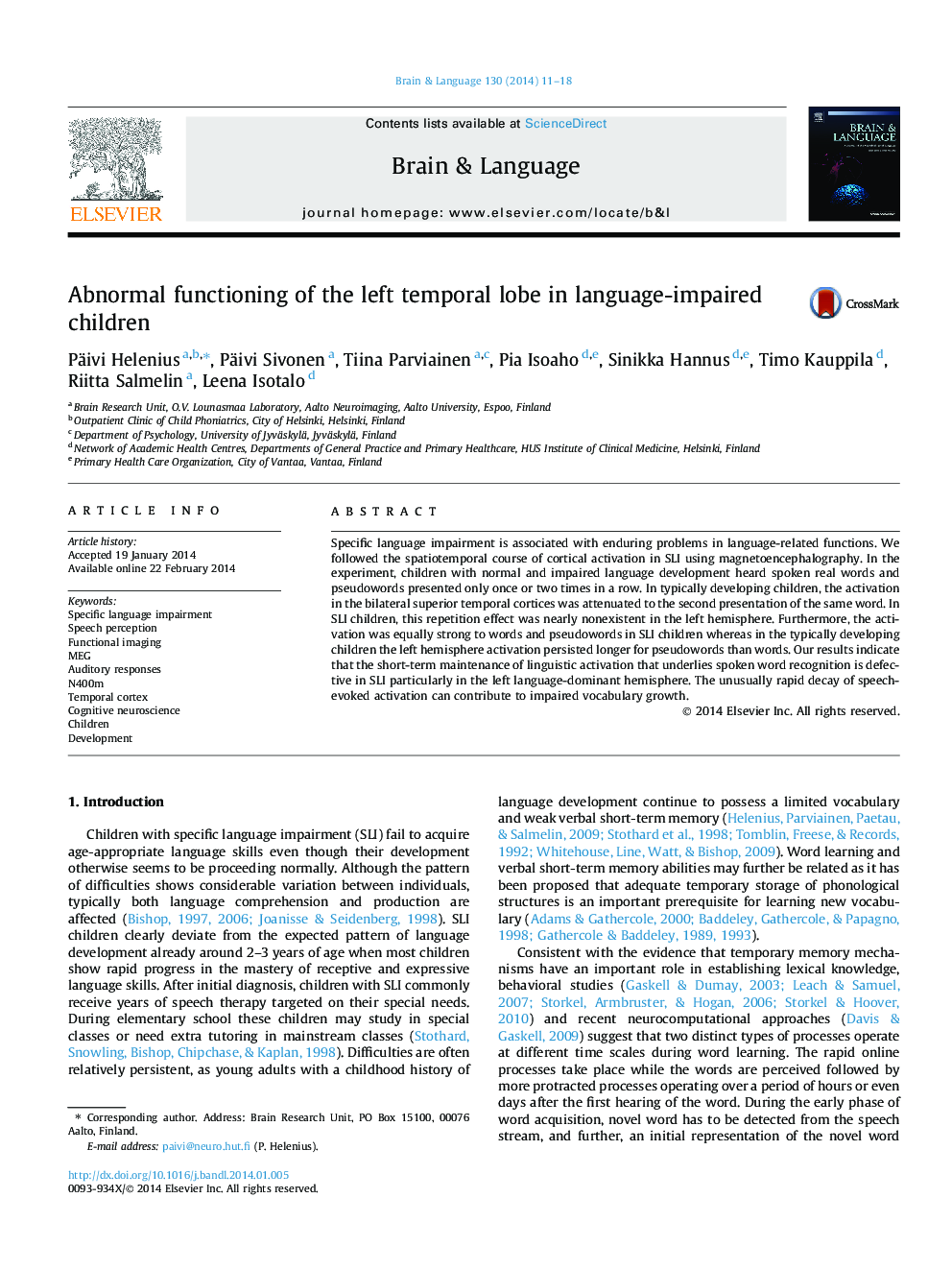| Article ID | Journal | Published Year | Pages | File Type |
|---|---|---|---|---|
| 925299 | Brain and Language | 2014 | 8 Pages |
•Children listened to spoken words during time-sensitive MEG recordings.•In school-aged children auditory cortical responses were still considerably immature.•In typical children immediately recurring words attenuated temporal lobe activation.•In SLI children left hemisphere failed to differentiate 1st and 2nd presentation.•Rapid decay of speech-evoked activation can contribute to impaired vocabulary growth.
Specific language impairment is associated with enduring problems in language-related functions. We followed the spatiotemporal course of cortical activation in SLI using magnetoencephalography. In the experiment, children with normal and impaired language development heard spoken real words and pseudowords presented only once or two times in a row. In typically developing children, the activation in the bilateral superior temporal cortices was attenuated to the second presentation of the same word. In SLI children, this repetition effect was nearly nonexistent in the left hemisphere. Furthermore, the activation was equally strong to words and pseudowords in SLI children whereas in the typically developing children the left hemisphere activation persisted longer for pseudowords than words. Our results indicate that the short-term maintenance of linguistic activation that underlies spoken word recognition is defective in SLI particularly in the left language-dominant hemisphere. The unusually rapid decay of speech-evoked activation can contribute to impaired vocabulary growth.
